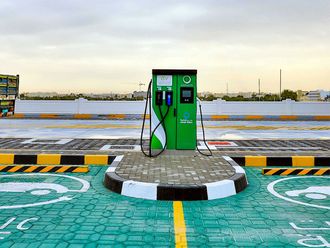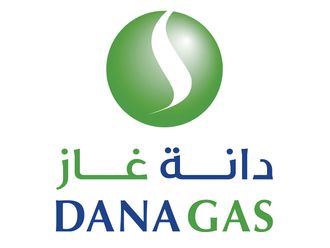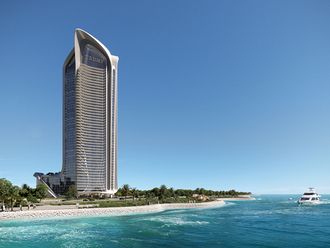Dubai : Arab oil ministers gathering in Qatar have crude prices where they want them even after a more than 10 per cent fall driven by concern other European nations could suffer a debt crisis similar to that of Greece.
Members of the Organisation of Petroleum Exporting Countries (Opec) attending an Arab Energy Conference will be watching international oil markets for further falls, but also have the challenge of meeting rapidly rising energy demand at home high on their agendas.
"The concern for producers will be what happens if the sovereign debt crisis spreads across Europe and over the Atlantic," said Victor Shum, an analyst at energy consultancy Purvin & Gertz. "This will scupper the global economic recovery."
The conference in Doha from tomorrow until Wednesday is not an Opec gathering, but oil ministers will probably hold informal meetings on the sidelines of the four-day event. Ministers from Opec members Saudi Arabia, the UAE, Qatar, Kuwait, Algeria and Libya are expected to attend.
"Issues related to Opec supply will be discussed," said one Opec delegate. "But the oil price is not based on fundamentals and is moving on fluctuations in the US dollar."
US crude hit a 19-month high on Monday of $87.15 (Dh320.53), but has since fallen back sharply, dropping to an intra-day low below $75 a barrel on Thursday, its weakest since February. It was back above $77 yesterday.
The extent of the fall and the volatility could worry some Opec ministers, but the price is back in the $70 to $80 per barrel range the group's largest producer Saudi Arabia has said was fair for consumers and producers.
Different story
"The price is still in a good place for the Saudis," said Bill Farren-Price of consultancy Petroleum Policy Intelligence. "I don't hear anybody complaining. Below $70 would be a different story."
Oil has mostly traded above $80 since early March, and Kuwait's oil minister last week talked of stepping in to calm the rally if the price hit $100.
Opec ministers question the link between the price and oil market fundamentals. The price has stayed high in defiance of brimming global inventories, tepid demand growth in most of the world and a relatively high level of spare capacity among Opec members.
Opec is not scheduled to meet formally until October and has kept oil supply targets steady since late 2008. Higher prices have encouraged some members to boost output informally, but core Gulf Arab members Saudi Arabia, the UAE and Kuwait have stuck to output restraints.
A petrodollar-fuelled economic boom in much of the Arab region has left governments in some of the world's top oil producing countries struggling to meet domestic demand for gas and power.
"Unfettered growth in demand in these countries as a result of cheap or subsidised prices is something they will have to deal with at some point," said Farren-Price.












